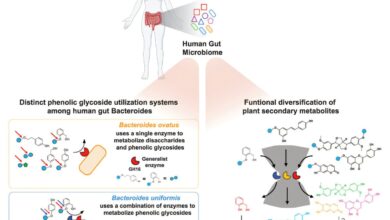Gender-affirming hormones protect from HIV, new data show

Over a decade ago, psychologist and researcher Jae Sevelius proposed the idea that affirming the gender identity of transgender individuals could lead to better overall health outcomes and reduce the risk of engaging in behaviors that put them at risk for HIV infection. This concept, known as the gender affirmation framework, suggests that with proper medical care and validation from society, transgender individuals would be less likely to engage in risky behaviors.
A recent study published in The Lancet HIV supports Sevelius’s hypothesis. The study, which included over 8,000 trans and nonbinary individuals, found that patients receiving gender-affirming hormones were 37% less likely to be infected with HIV and 44% less likely to have transmissible levels of the virus in their blood. This significant effect size confirms the importance of gender-affirming care in reducing HIV risk among transgender individuals.
The study comes at a critical time when research and clinical care for trans individuals have been impacted by government actions that deny variations in sex and limit access to care for young people. Despite these challenges, researchers like Sari Reisner from the University of Michigan School of Public Health are committed to studying the intersection of gender affirmation and HIV risk among trans communities.
The study followed patients from LGBTQ+ community health centers in New York and Boston, focusing on individuals with diverse gender identities and racial backgrounds. The results showed disproportionately high rates of HIV among Black, Hispanic, and multiracial trans participants, highlighting the impact of structural barriers on HIV risk.
While the study was limited to specialized clinics providing gender-affirming care, the findings are likely applicable across healthcare settings. Future research will explore the mechanisms behind the associations between gender affirmation and HIV risk, as well as the impact of social, psychological, and legal factors on trans health outcomes.
Despite the challenges ahead, researchers are determined to continue studying the benefits of gender-affirming care and its role in HIV prevention. With ongoing support and funding, studies like these can provide valuable insights into improving the health and well-being of transgender individuals. The world of technology is constantly evolving, with new innovations and advancements being made on a regular basis. One area that has seen significant growth in recent years is artificial intelligence (AI). AI is the simulation of human intelligence processes by machines, especially computer systems. It is revolutionizing industries across the board, from healthcare to finance to entertainment.
One industry that is particularly benefiting from AI is healthcare. AI has the potential to transform the way healthcare is delivered, making it more efficient and effective. For example, AI-powered algorithms are being used to analyze medical images and diagnose diseases more accurately and quickly than ever before. This can help doctors make more informed decisions and provide better care to their patients.
In addition to medical imaging, AI is also being used in drug discovery and development. By analyzing vast amounts of data, AI can identify potential drug candidates that would have been missed by traditional methods. This has the potential to speed up the drug development process and bring new treatments to market faster.
AI is also being used to personalize treatment plans for patients. By analyzing a patient’s genetic makeup, medical history, and other data, AI can identify the best course of treatment for that individual. This can lead to better outcomes and lower healthcare costs in the long run.
Another industry that is benefiting from AI is finance. AI-powered algorithms are being used to analyze market trends and make investment decisions in real-time. This can help investors make more informed decisions and potentially increase their returns.
AI is also being used to detect fraud and prevent financial crimes. By analyzing patterns in financial transactions, AI can identify suspicious activity and alert authorities before any harm is done. This can help protect consumers and financial institutions from fraudsters.
In the entertainment industry, AI is being used to create more immersive and personalized experiences for consumers. For example, streaming services like Netflix use AI algorithms to recommend content based on a user’s viewing history. This can help users discover new shows and movies that they may not have otherwise found.
Overall, AI is revolutionizing industries across the board, making them more efficient, effective, and personalized. As the technology continues to evolve, we can expect to see even more advancements in the years to come. It is an exciting time to be at the forefront of this technological revolution.





